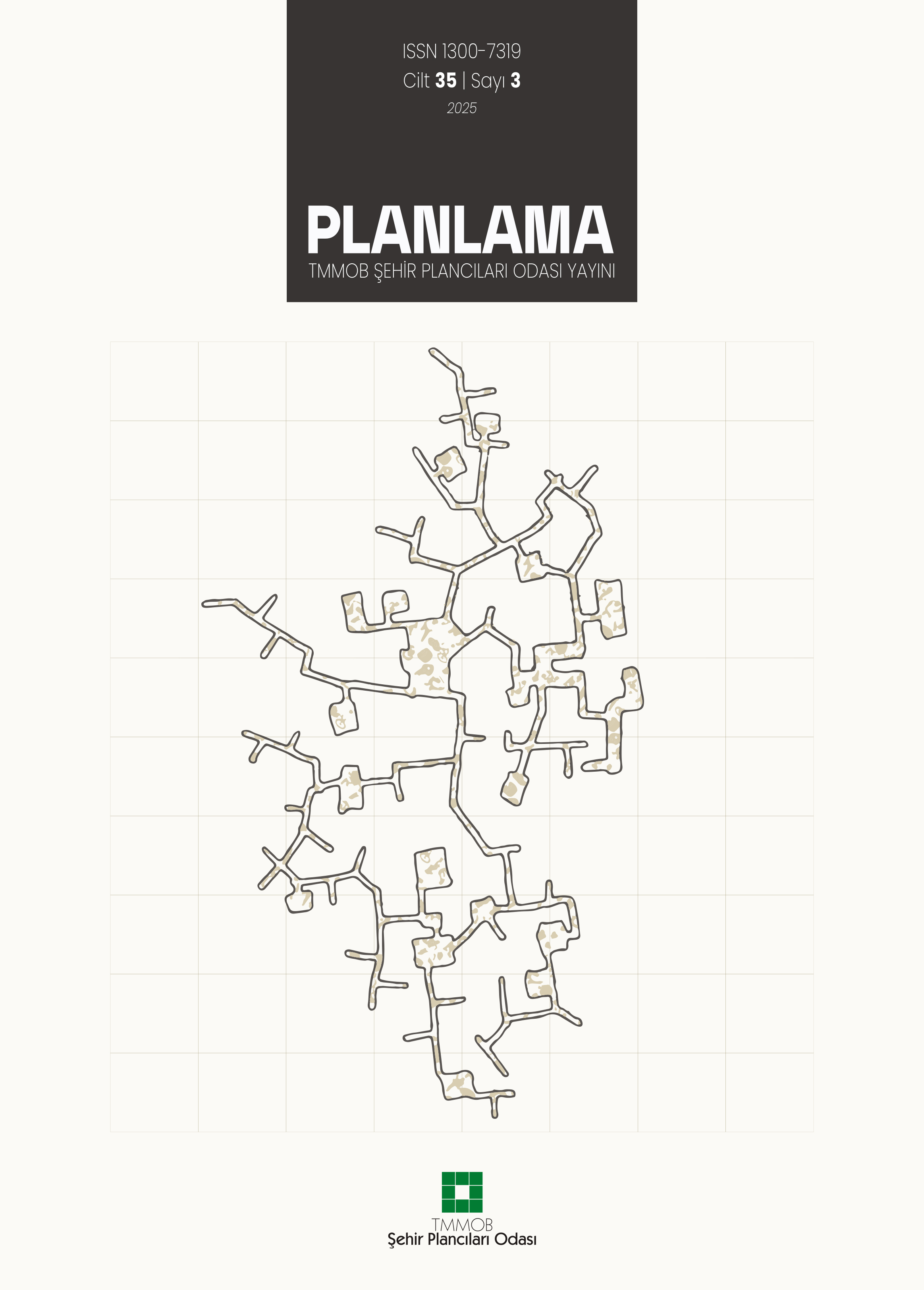Popülizme Karşı Katılım: Sosyal Sürdürülebilirlik Bağlamında Konut Alanlarında Katılımcı Tasarım Yaklaşımları
Berkay Oskay1, Ömür Barkul21İstanbul Kültür Üniversitesi Mimarlık Fakültesi, Mimarlık Bölümü, İstanbul2Yıldız Teknik Üniversitesi Mimarlık Fakültesi, Mimarlık Bölümü, İstanbul
Toplumun çeşitlenen ihtiyaç ve isteklerinin, ilerleme ve iyileştirme hedeflerinin karşılanması bakımından nicel ve nitel çok katmanlı ilkeleri içeren sosyal sürdürülebilirliğin sağlanmasında, tüm toplumsal kesimleri içeren katılım ilkesi önemli rol oynar. Mimarlık ve planlama disiplinleri açısından, herkes için yaşanabilir konut ve çevrelerin oluşumunda, katılımcı planlama ve katılımcı tasarım pratiklerine yönelik araştırmalar son yıllarda yeniden ön plana çıkmaktadır. Liberal demokrasilerin sürüklendiği temsil krizine karşı 1960lardan itibaren yükseliş gösteren katılımcı tasarım ve planlama uygulamaları, zaman içinde neoliberal politikaların belirleyici hale gelmesiyle hızını yitirmiş ve sermaye hareketleri kent mekânını belirleyen en önemli unsur haline gelerek halkları yaşam alanları hakkında söz sahibi olamayan, kaderine razı topluluklara indirgemiştir. 2000li yıllardan günümüze ise dönemin yaygın iklimini belirleyen illiberal popülist eğilimlerin yükselişine karşı tüm dünyada ve ülkemizde de sıkça görülen kentsel muhalefet hareketlerinin ortak taleplerinin katılım ilkesi çerçevesinde örgütlendiği görülmektedir. Bu bağlamda, öncelikli olarak çalışmanın çıkış noktasını oluşturan kuramsal arka planda, sosyal sürdürülebilirliğin inşasında katılım ilkesinin rolü ve günümüzde yaygınlaşan popülist eğilimlere karşı katılımcı mekanizmaların önemi tartışmaya açılmaktadır. Sonrasında, planlamada ve konut alanlarında katılımcı tasarım ilkeleri, araçları ve katılım yöntemleri üzerinden betimleyici bir çerçeve çizilmektedir. Çalışmanın özgün yanı, güncel bir konuyu ele alan betimleyici bir çerçeve sunmasıdır. Böylece, günümüzde yeniden yükselişe geçen katılım yazınına katkı sunması hedeflenmektedir.
Anahtar Kelimeler: Katılımcı planlama, katılımcı tasarım; konut; sosyal sürdürülebilirlik; sürdürülebilir kalkınma.
Participation against Populism: Participatory Design Approaches in Residential Areas in the Context of Social Sustainability
Berkay Oskay1, Ömür Barkul21Istanbul Kultur University Faculty of Architecture, Department of Architecture, Istanbul2Yıldız Technical University, Faculty of Architecture, Department of Architecture, Istanbul
The principle of participation has an important role in maintaining social sustainability. In recent years, debates on participatory planning and participatory design practices have come to the fore in the creation of liveable environments for everyone in terms of architecture and planning disciplines. Participatory design and planning practices, which have risen against the representation crisis driven in liberal democracies since the 1960s, have lost momentum while the neoliberal doctrines have become determinant over time, and capital flows have become the most important factor that determines the urban space, and reduced the societies to the communities who cannot have a say on their environments. It is seen that the common demands of urban opposition movements, which are spreading around the world and in Turkey, against the rise of illiberal populist tendencies that have determined the widespread climate of the period since the 2000s, have been organized within the framework of the principle of "participation". In this study, we discussed the role of the principle of participation in the construction of social sustainability and the importance of participatory mechanisms against the populist tendencies today in the theoretical background that constitutes the starting point of the study. Afterwards, we examined the participatory design principles, tools and participation typologies in planning and housing areas according to this framework. The unique aspect of the study is that it presents a descriptive framework that evaluates a current question. Thus, it is aimed to contribute to the participation literature, which is on the rise again in the immediate present.
Keywords: Participatory planning, participatory design; housing; social sustainability; sustainable development.
Makale Dili: Türkçe














